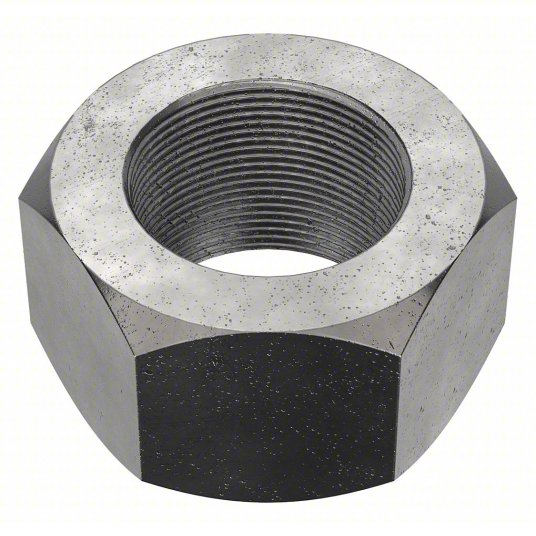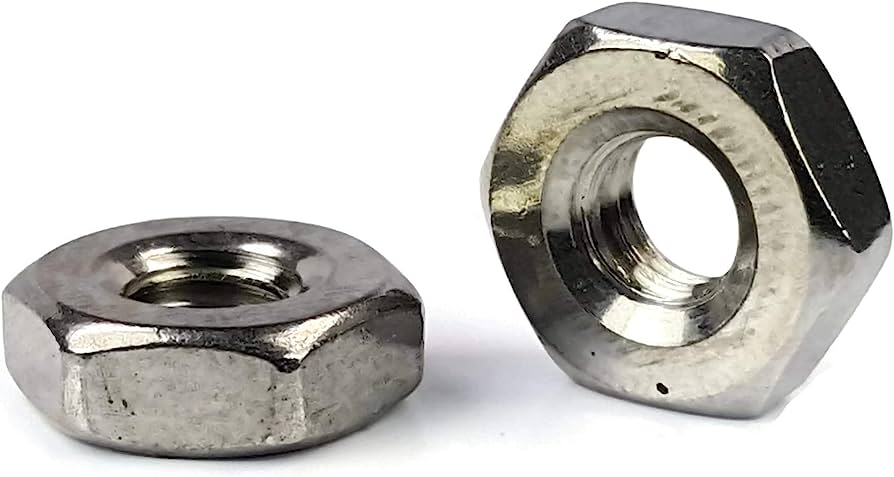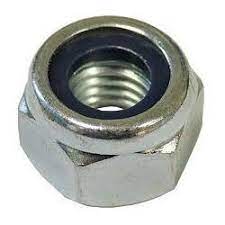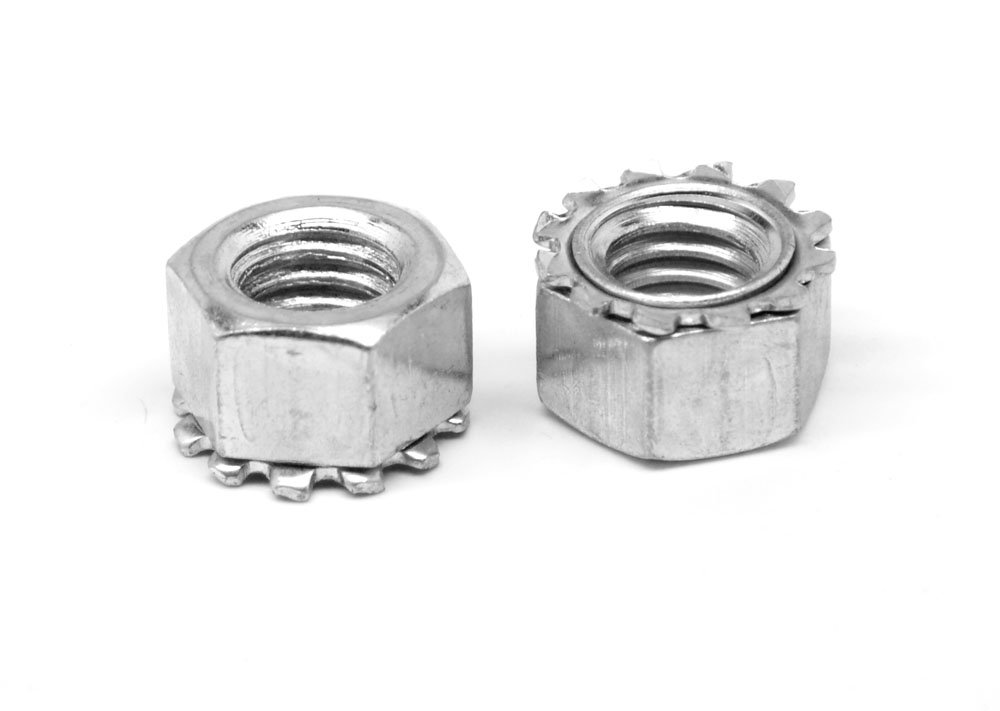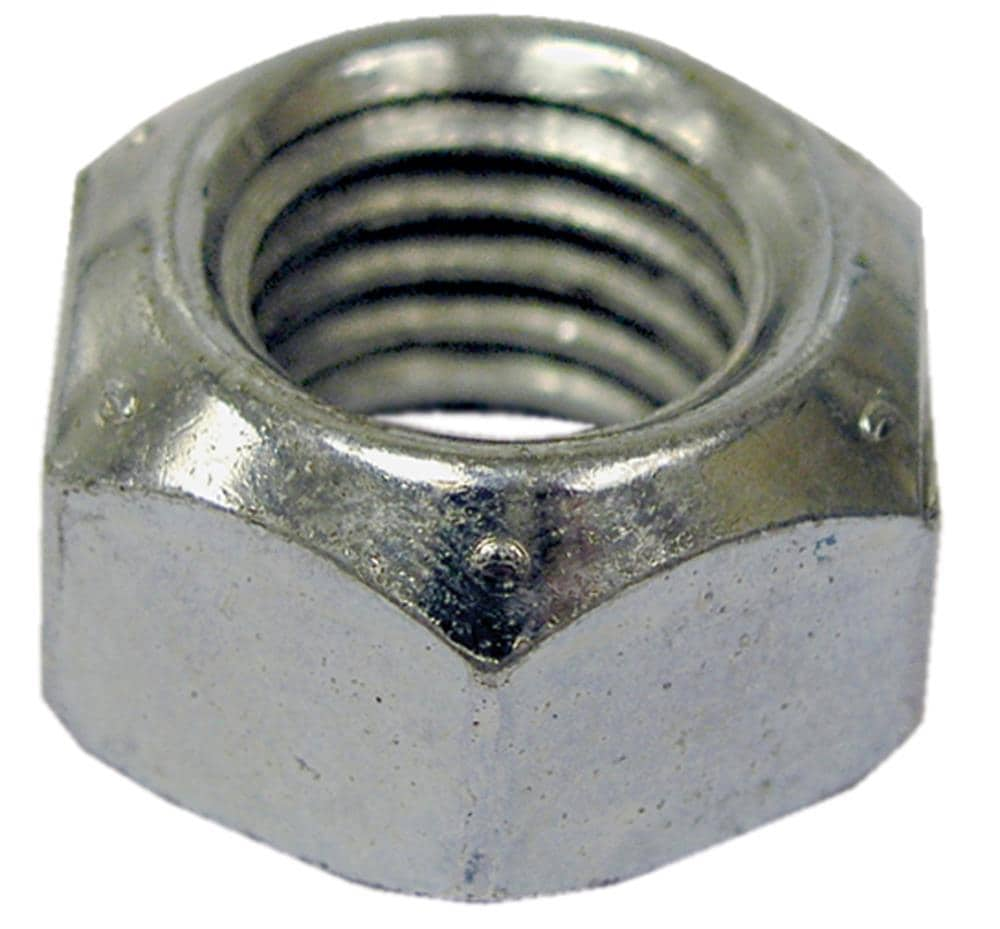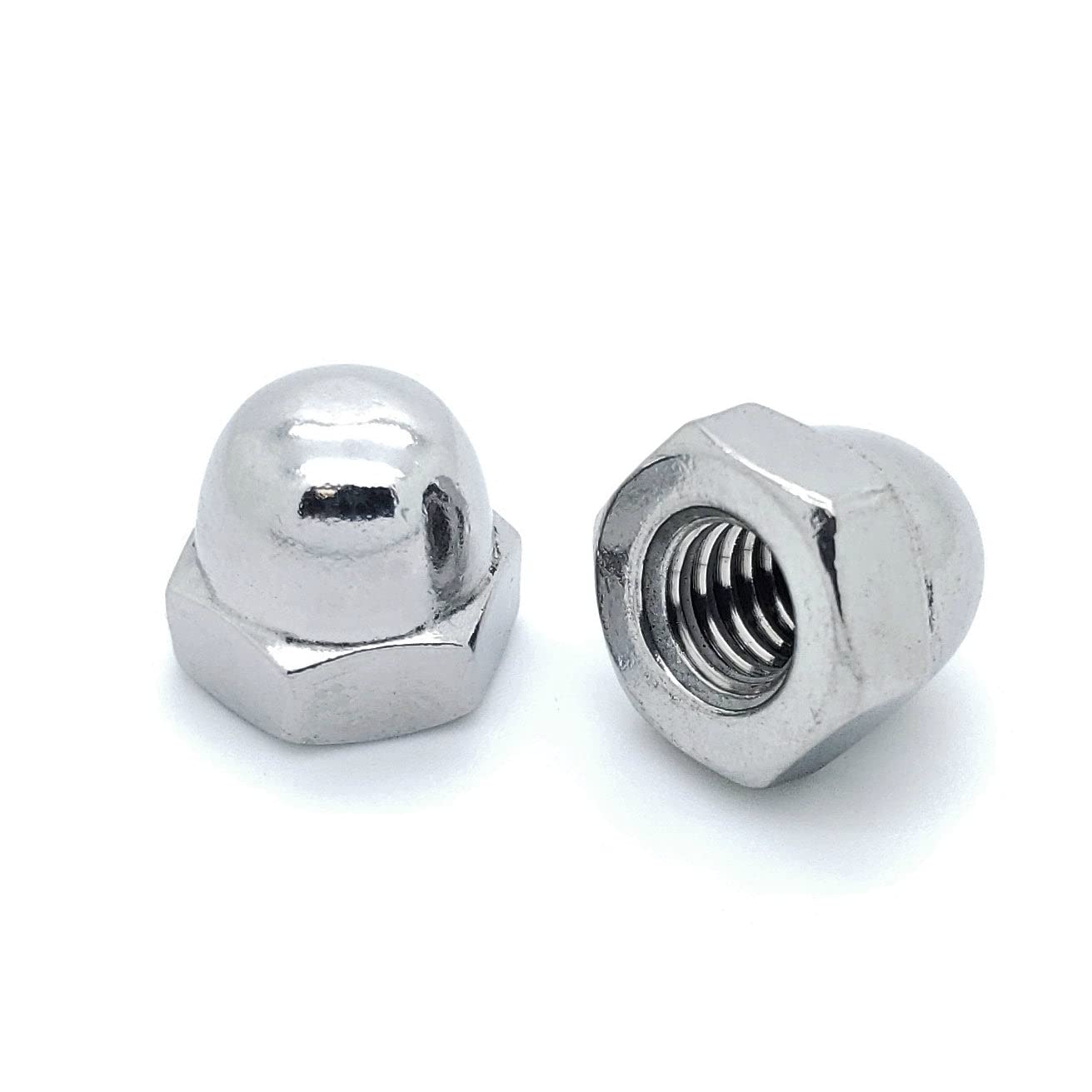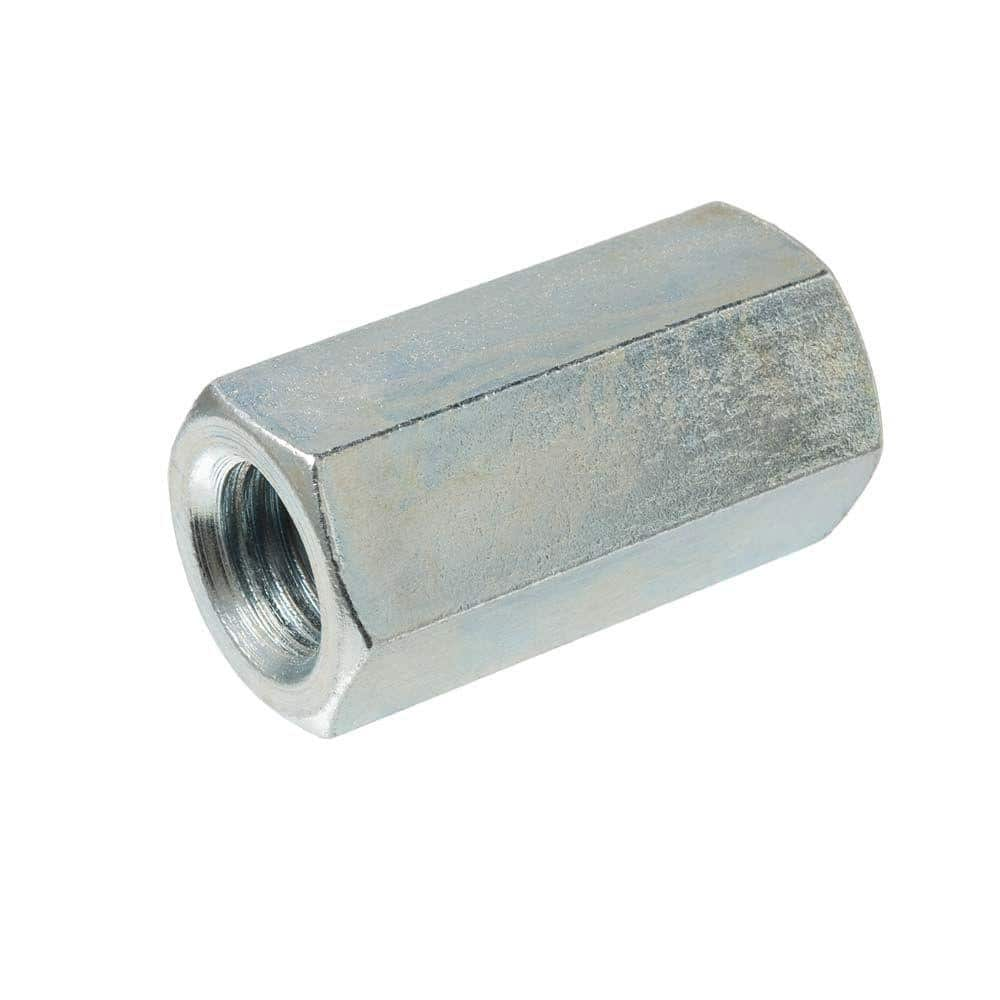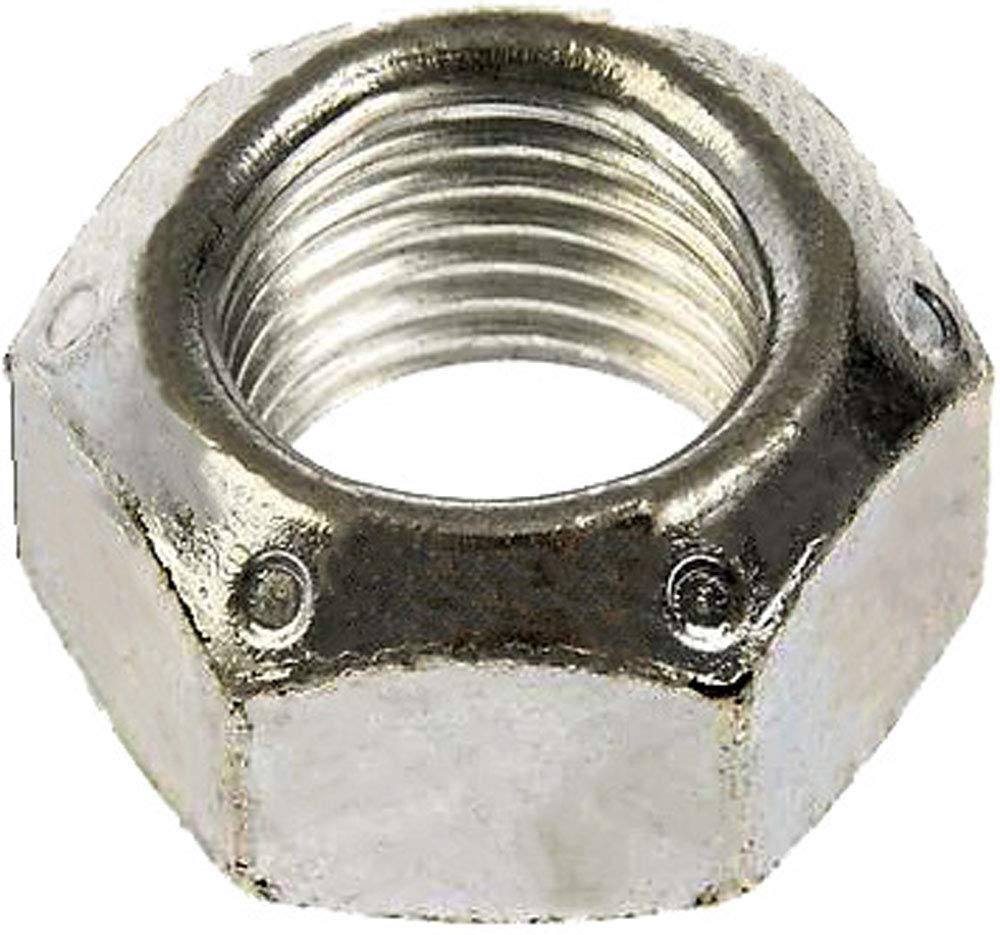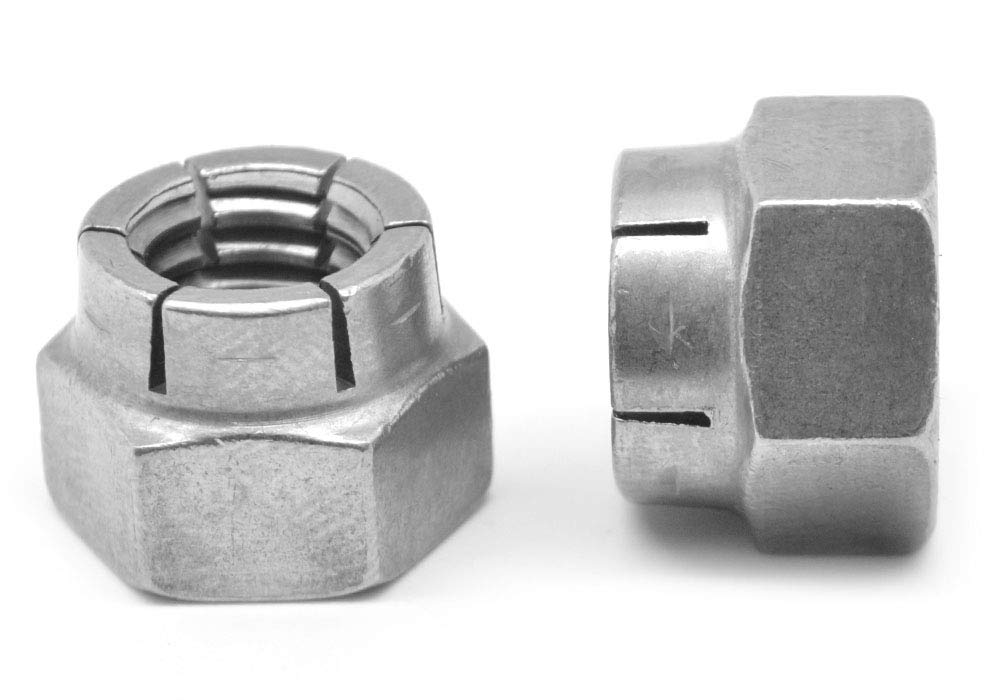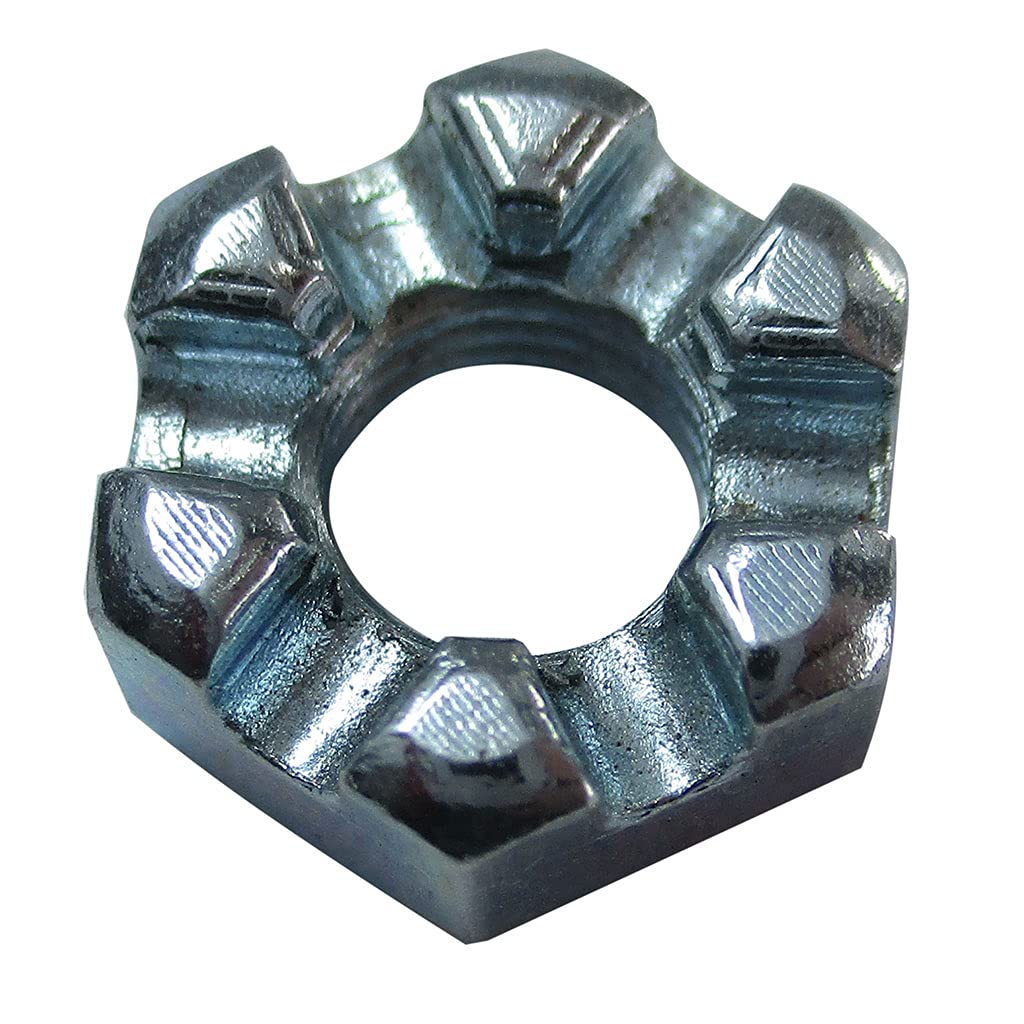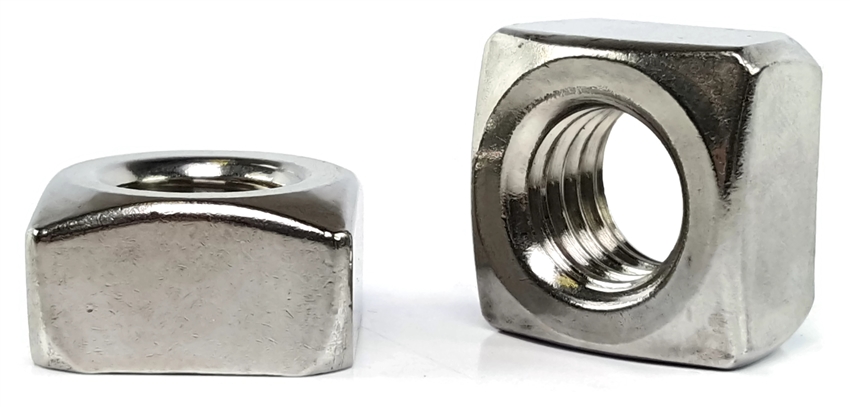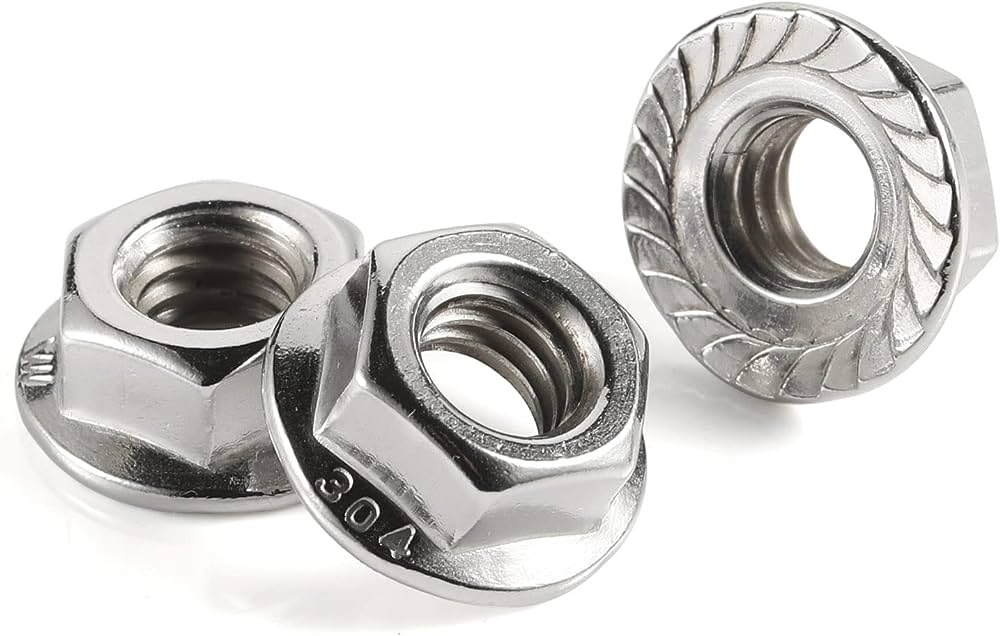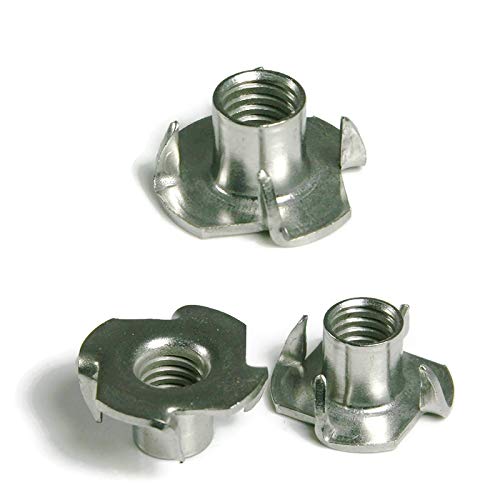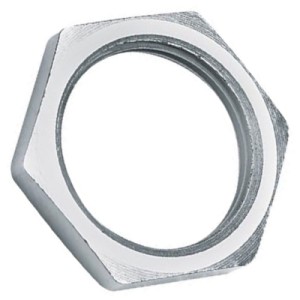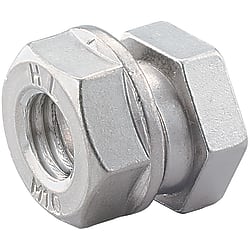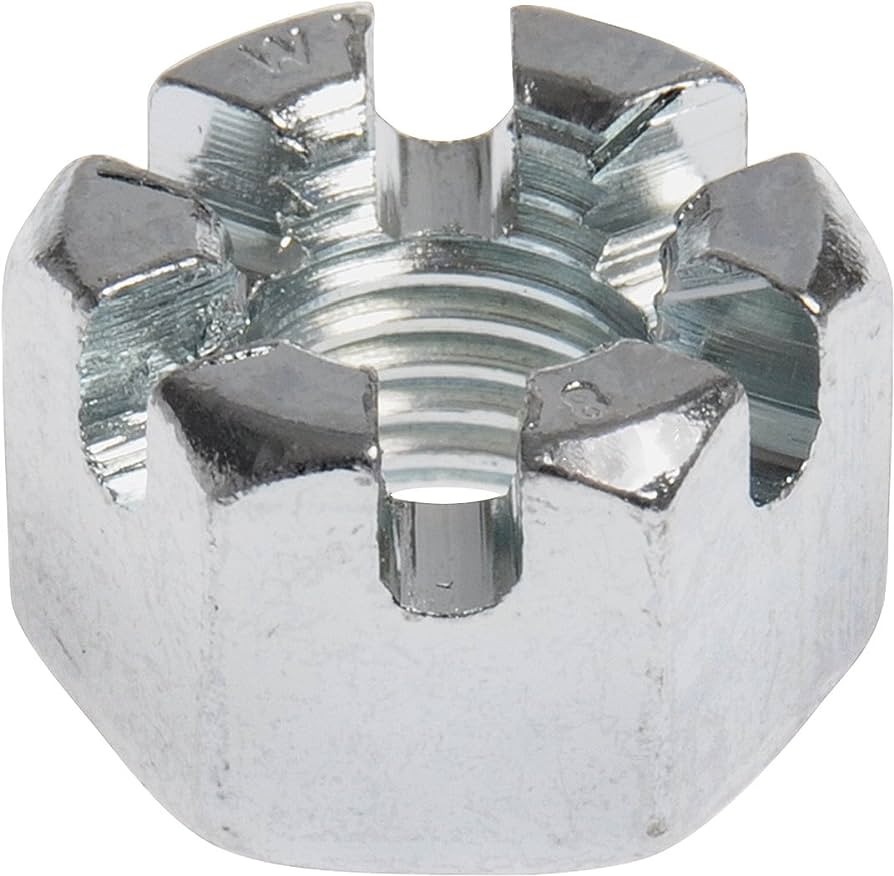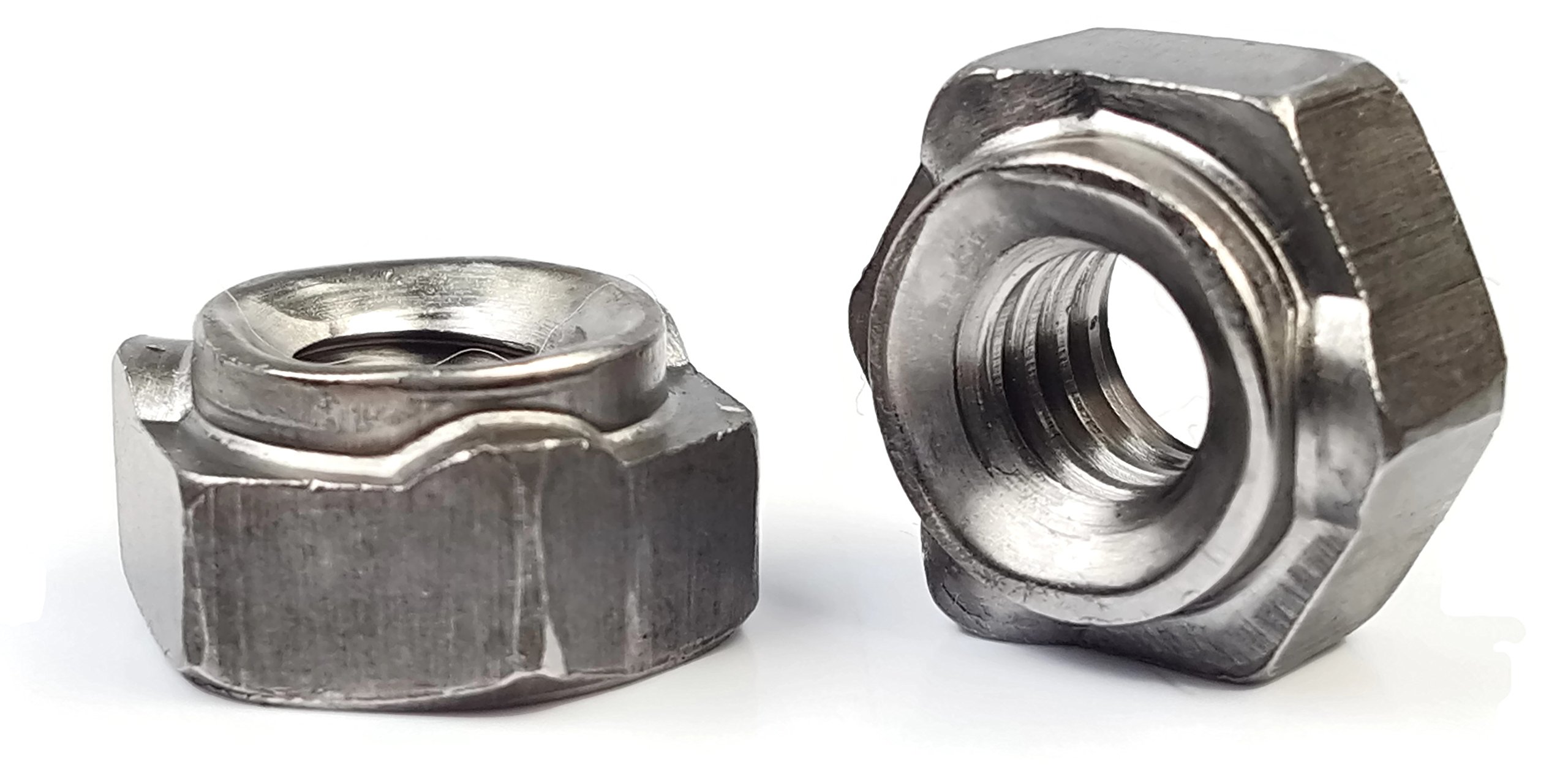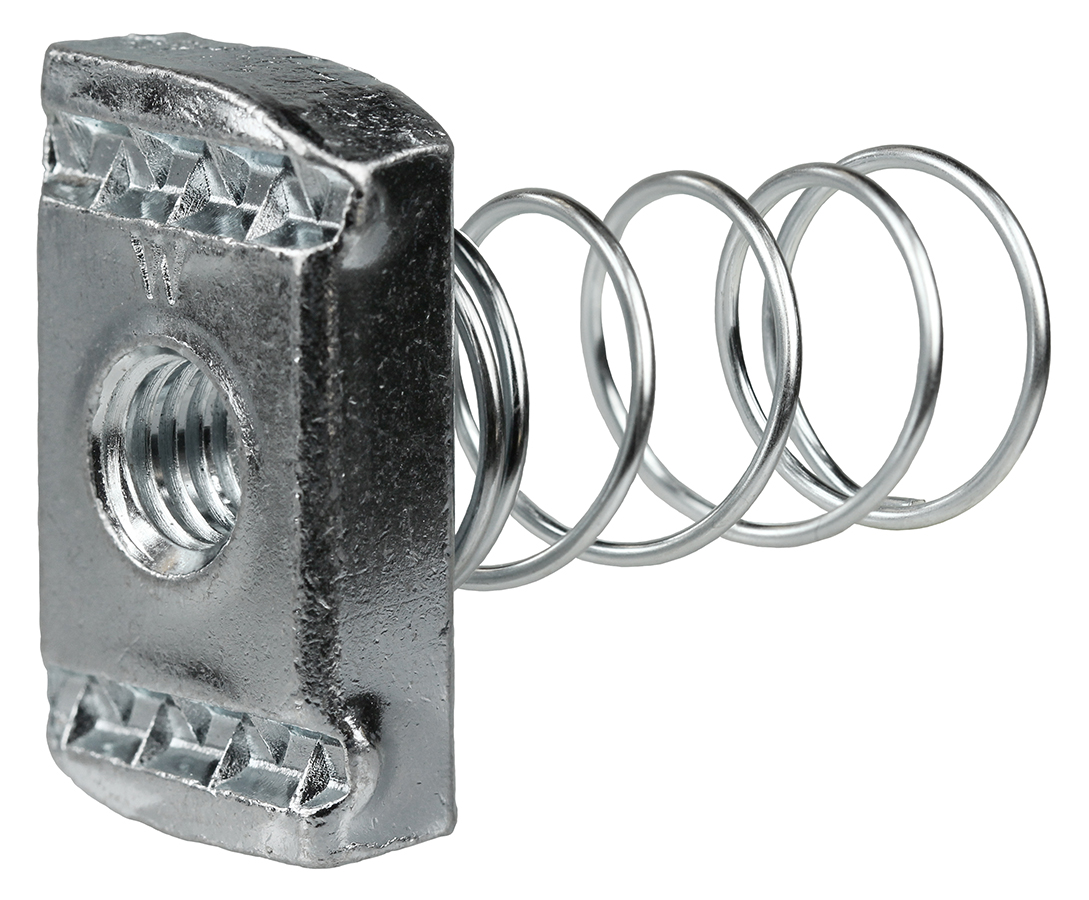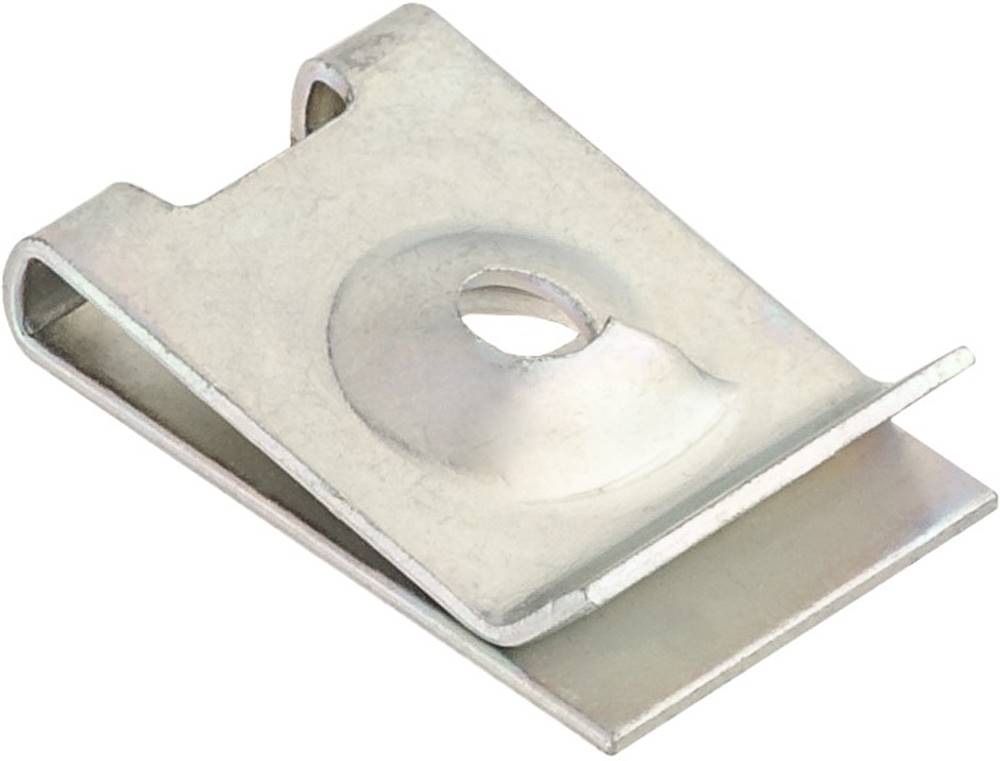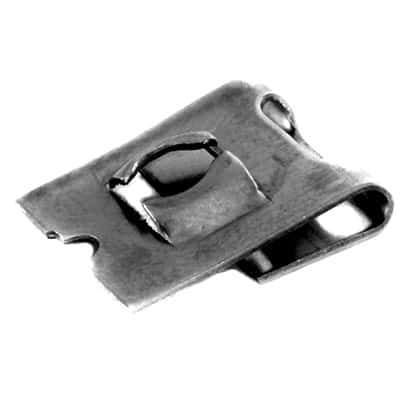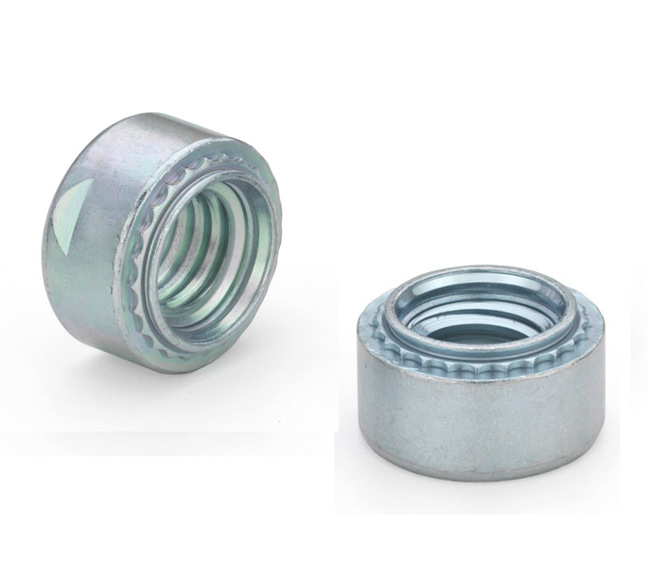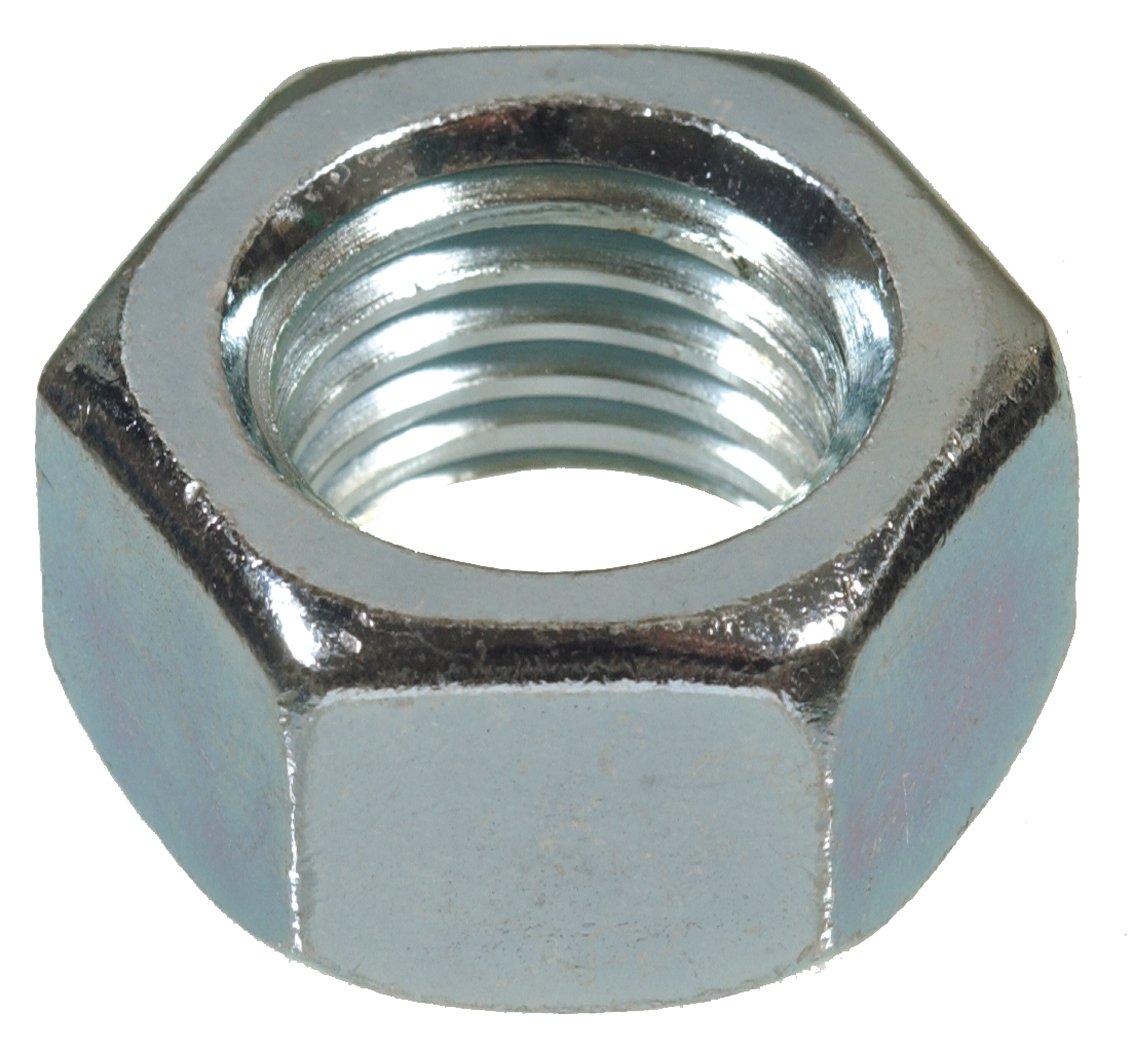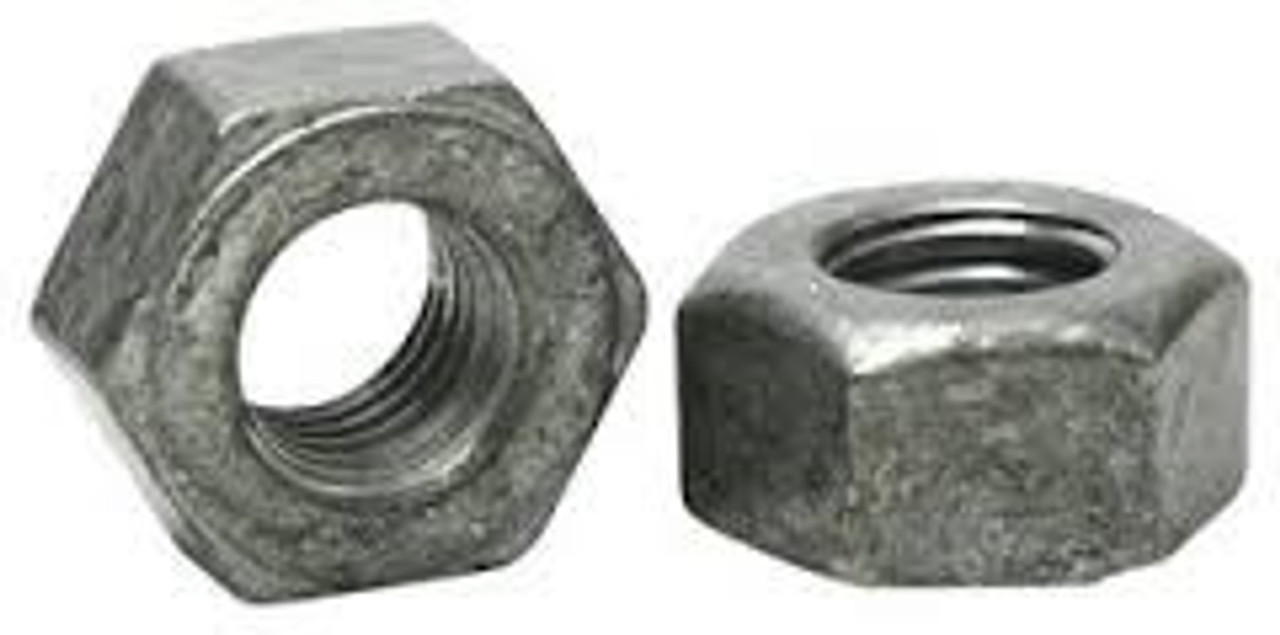Jam
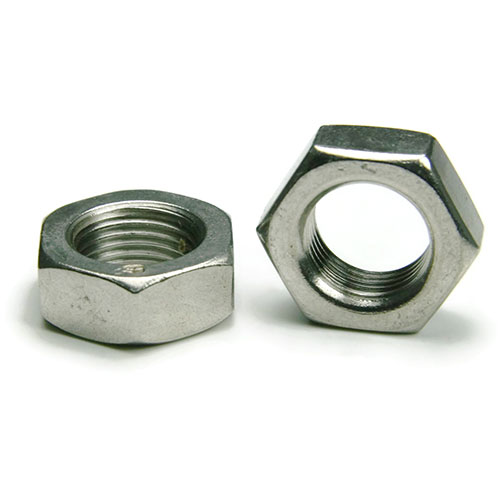
A jam nut is a specific type of nut used in various applications to lock, secure, or adjust the position of a fastener, such as a bolt or a threaded rod. Unlike regular nuts that are used to fasten components together, a jam nut is typically used in conjunction with another nut to serve a specific purpose.
Jam nuts are thin and smaller in height compared to standard nuts, which allows them to be tightened against another nut or the threaded end of a bolt. The primary function of a jam nut is to prevent the main nut from loosening due to vibration, temperature changes, or other external forces. When tightened against the main nut, it creates a locking effect, preventing the main nut from rotating freely and maintaining the desired position and tension.
These nuts often have a hexagonal shape, making them compatible with common wrenches or socket sets for easy installation and tightening. Jam nuts are available in various materials, including steel, stainless steel, brass, and other alloys, to accommodate different applications and environmental conditions.
Jam nuts are commonly used in situations where securing and adjusting the position of fasteners is critical, such as in automotive, machinery, construction, and aerospace industries. For example, they are commonly used in conjunction with regular nuts in suspension systems, steering components, and various mechanical assemblies to ensure that critical connections remain stable and reliable over time.
In summary, a jam nut is a specialized nut designed to lock, secure, or adjust the position of a fastener when used together with another nut, providing enhanced stability and preventing unintentional loosening. Its compact size and specific application make it an essential component in various mechanical and industrial settings.
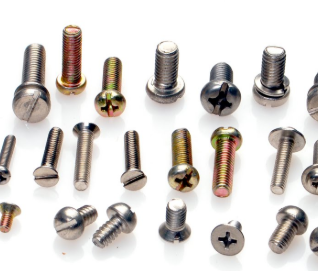 SCREWS
SCREWS
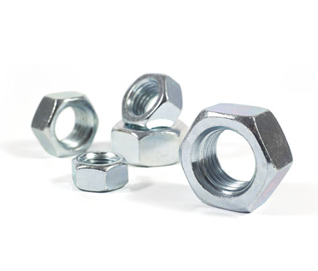 NUTS
NUTS
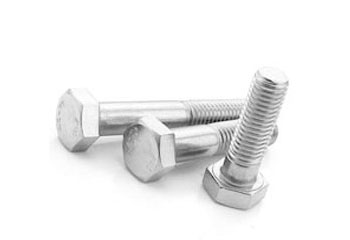 BOLTS
BOLTS
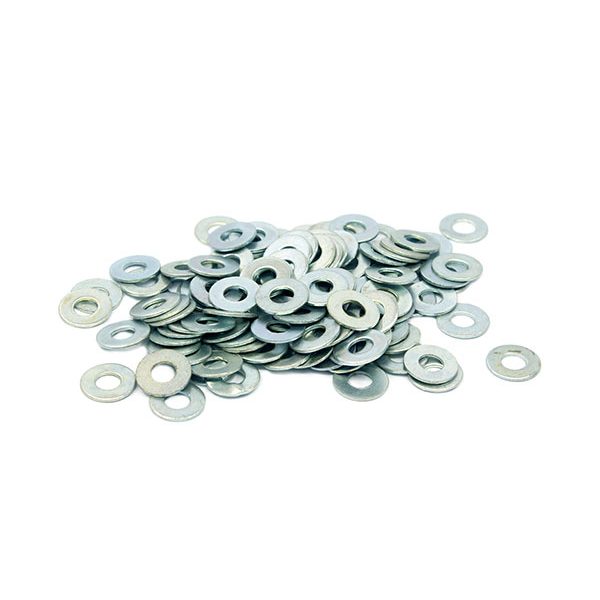 WASHERS
WASHERS
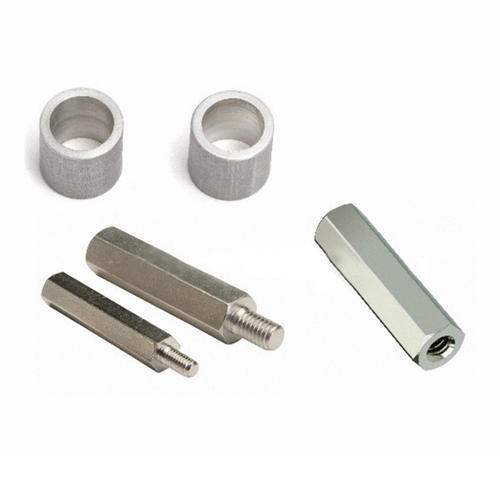 SPACERS & STANDOFFS
SPACERS & STANDOFFS
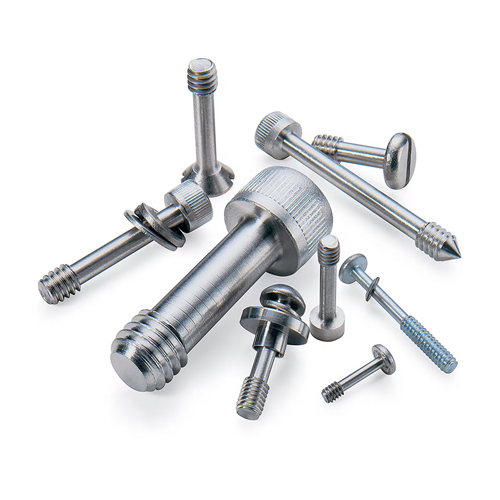 PRECISION/CUSTOM PARTS
PRECISION/CUSTOM PARTS
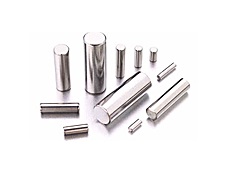 PINS
PINS
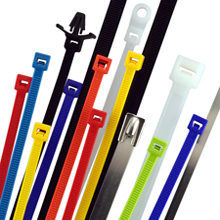 WIRE HANDLING
WIRE HANDLING
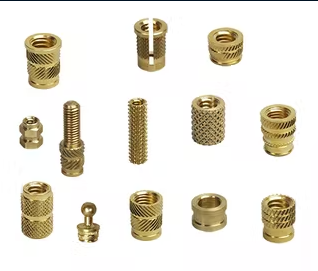 INSERTS
INSERTS
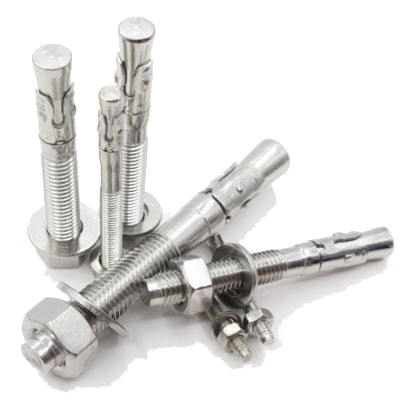 ANCHORS
ANCHORS
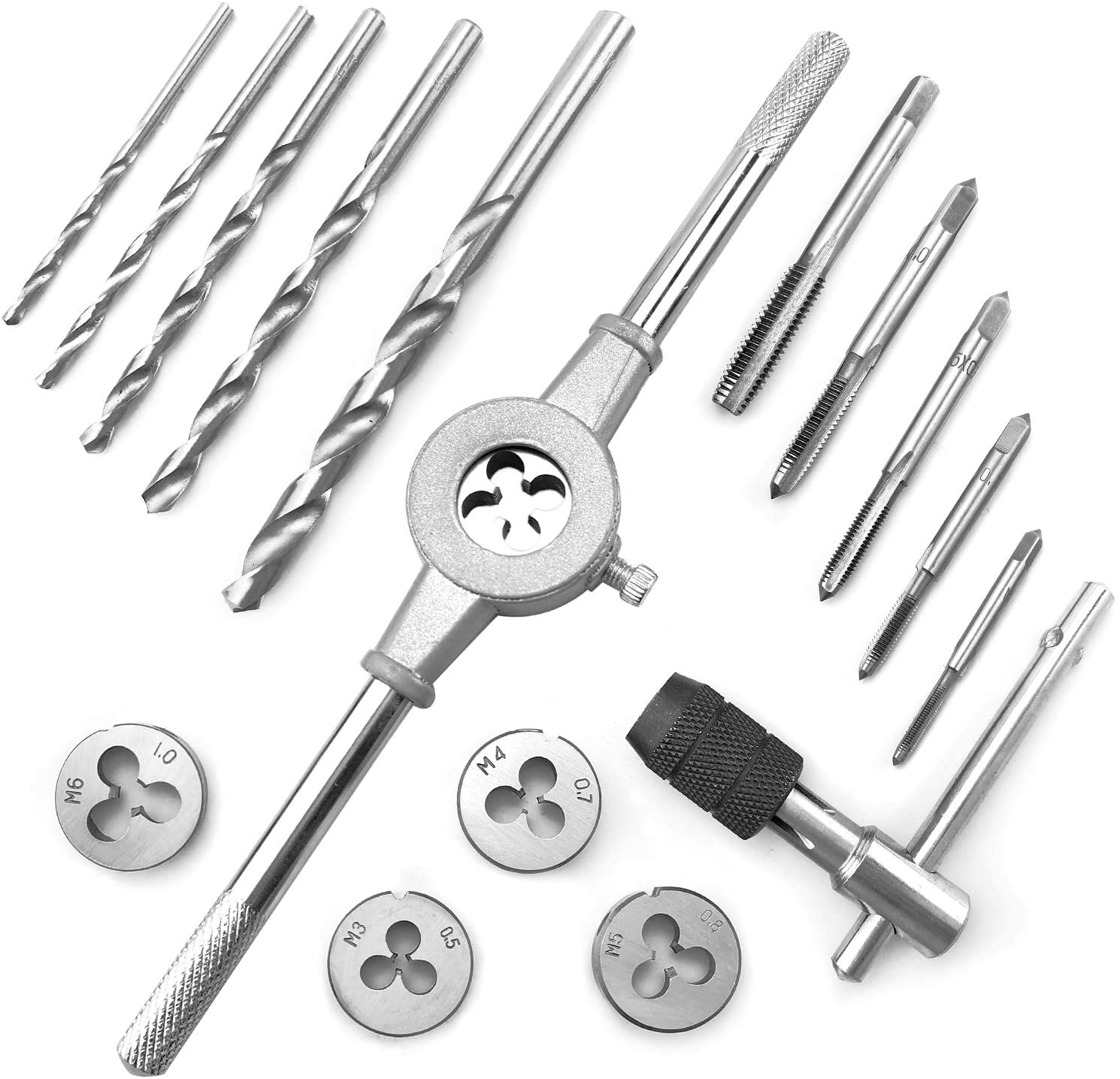 DRILL BITS, TAPS, & DIES
DRILL BITS, TAPS, & DIES
 ABRASIVES & SAWBLADES
ABRASIVES & SAWBLADES
 SAFETY EQUIP.
SAFETY EQUIP.
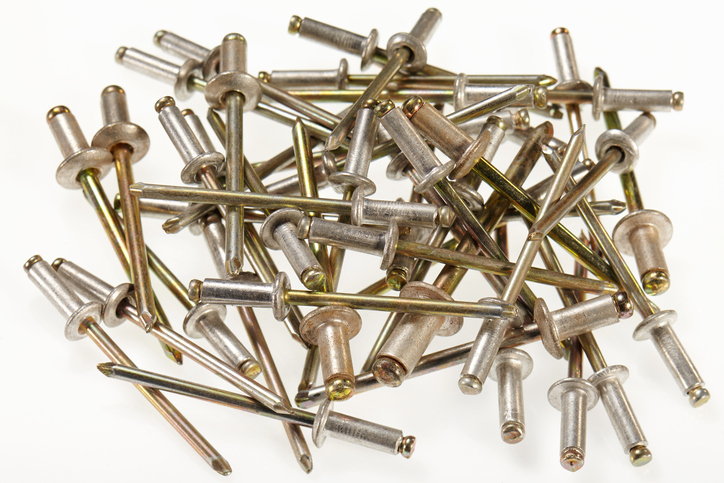 MISC.
MISC.
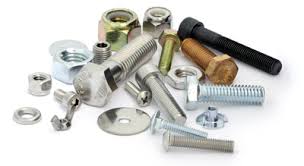 MATERIAL TYPES
MATERIAL TYPES
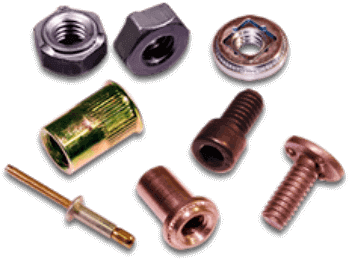 PLATING TYPES
PLATING TYPES
